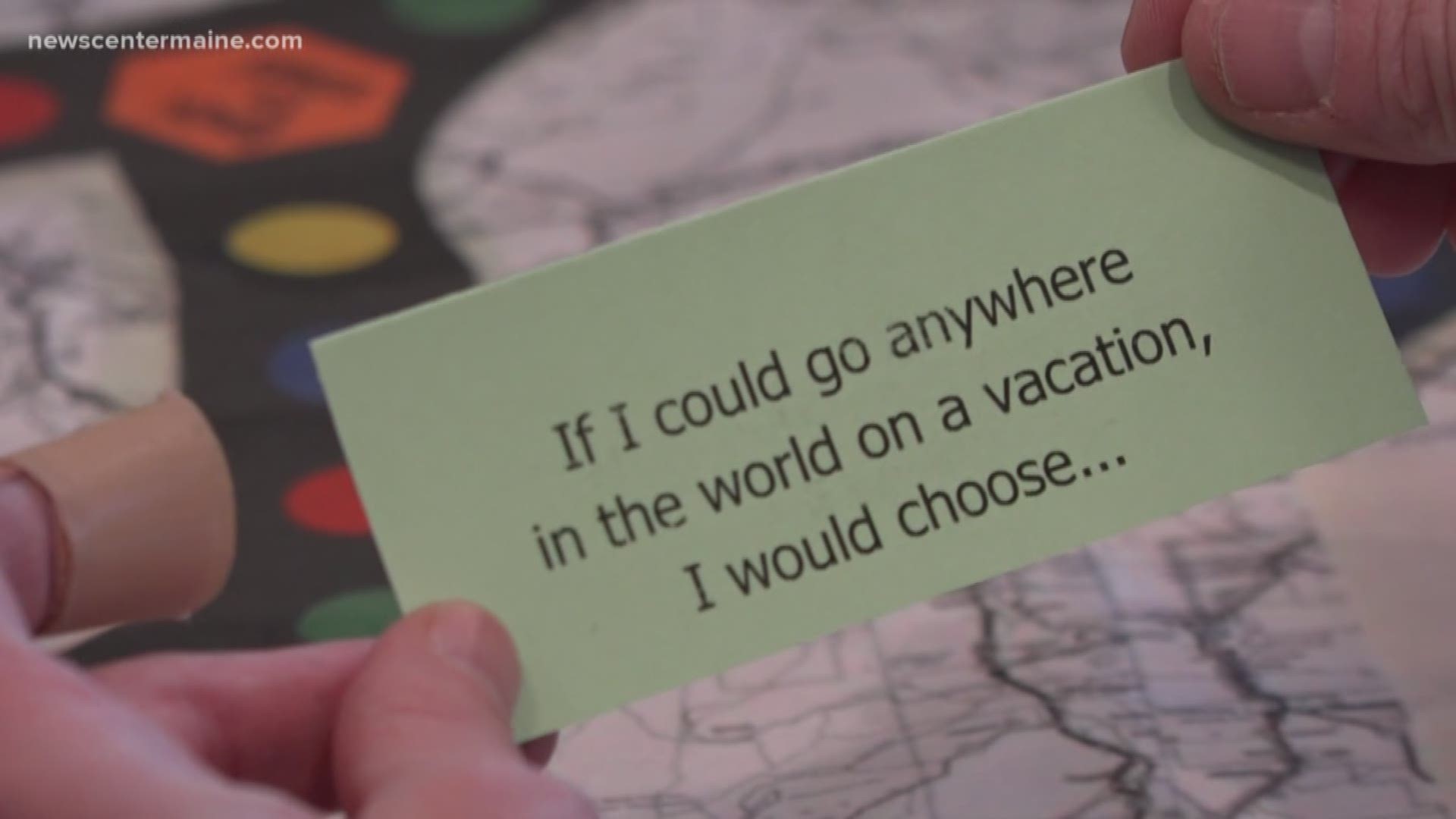How well do you think you know your mom, dad, son or daughter? How about your grandparents?
For those who answer, "pretty well" you might be pretty surprised by the results of research conducted right here in Maine.
On a college campus in Portland, by the looks of it, you'd think it's all fun and games. The students and professors are hard at work, however, crafting an evidence-based board game. That's according to Tom Meuser, the founding Director of the Center for Excellence in Aging and Health at the University of New England.
He and his team of students created "Family Get Together" and tested the prototype Wednesday.
"My students and I have interviewed over 350 older adults about their life stories," said Meuser.
More than a decade ago he started researching how parents and children view one another. No matter how well you think you know your mom or dad or kids, his findings prove otherwise.
"If you think of a venn diagram with two circles, the parent and the child, you put the two circles together for the overlap," he explained. "In this research, we've done two rounds of it, I've asked the parents and children to predict how much overlap is there going to be? Most say 'oh 50%, 75%.' The average is less than 25%."
Four categories help players navigate ways to start a conversation about the things we can only imagine and the topics tough to imagine.
"It is important that we know things about each other related to how we feel about death or end of life care or what we want done for us as far as healthcare and so forth," said Regi Robnett, a professor at UNE.
"My current internship is at hospice," said Corey Carmichael, a masters student. "I'm seeing families engage in these discussions often in kind of rushed ways right at the end."
Whether to start serious conversations sooner or share a laugh with the people we love most, it's a game where everyone wins.

